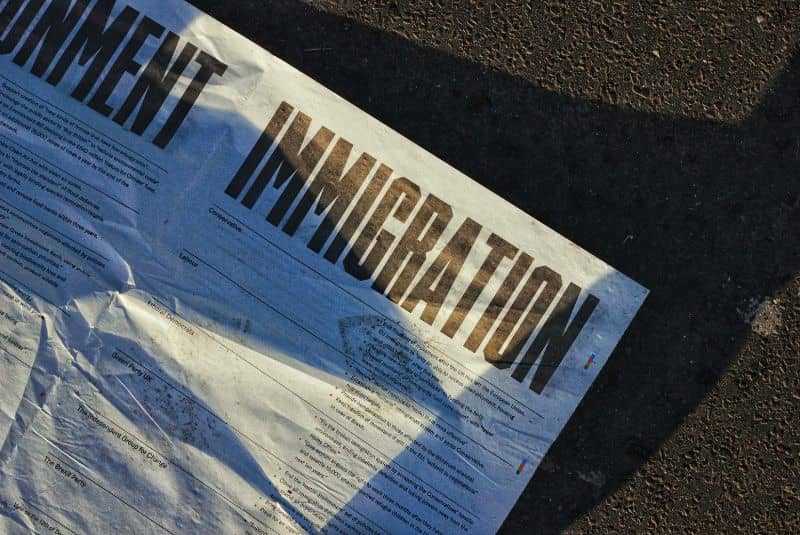I Was Denied U.S. Citizenship Application – Can I Apply Again and How Soon?

For many seeking American citizenship, the day they finally get to submit Form N-400 feels like a finish line. You’ve lived in the country for years, passed your tests, and submitted every document.
However, thousands of citizenship applications are denied every year for reasons ranging from missing paperwork to tax issues. If you’ve received a denial letter, it can feel hopeless. But, many who get rejected go on to reapply and become citizens.
After a denial, you have the right to request a hearing to appeal the decision within 30 days of receiving your denial letter.
Here’s everything you need to know about citizenship denials and getting back on track to achieving your dream of becoming a U.S. citizen.
Common Reasons for U.S. Citizenship Denials
The USCIS officially rejects applications for a variety of reasons:
- Missing documentation – Failure to provide necessary forms, fees, civil documents
- Residence/physical presence issues – For example, being out of the country for too long
- Criminal history problems – Loose interpretations of “good moral character”
- Failed tests – English, civics exams, or interviews
- Misrepresentation – Contradictory information on various forms
Sometimes small technical issues trigger denials too – an expired green card, missed signature, etc. Understanding exactly why your particular application was denied is essential to planning a better refiling strategy.
The attached denial letter should specify the following:
- The legal basis for rejection – the law cited
- Detailed reasoning behind the decision
- Whether the issue relates to eligibility or discretion
- Options you have – refiling procedures, appeals processes
Do not simply reapply without addressing these details. Take time to understand the referenced laws or missing evidence to make sure you directly combat it on your next N-400.
The Appeals Process
File Form N-336 to request an appeal hearing, which is basically a re-interview with a new officer. The appeal hearing is your chance to make things right. Bring any important documents you didn’t include the first time around, like statements from people who can vouch for your good character, papers from your home country that show you have ties there or anything that fills in the gaps about your time living in the U.S. Most importantly, the appeals process is your chance to make legal arguments about why the first officer should not have denied your application.
The Law Office of Lina Baroudi can discuss the legal merits and viability of the paths you can take to fight back. And, if your N-336 appeal is denied, you can then sue USCIS in federal court.
Strategies for Reapplying for Citizenship Successfully
While crushing at the moment, a denied citizenship application isn’t always the end. Strategically craft an improved second application by identifying key areas where your original paperwork was insufficient.
Eligibility Considerations
Initially, let’s examine where exactly things currently stand:
- Permanent Resident Card – Do you still have a valid Permanent Resident Card with ample time remaining?
- Continuous Residence – Can you document any travel or visa gaps that may have disrupted the 5-year continuous residency rule?
- Physical Presence – Have you been out of the country for more than 30 months in total lately?
- Good Moral Character – Were there any criminal history or character issues that could be interpreted as poor moral assessment?
Right now, go through your current situation point-by-point. Make sure you meet all the technical legal eligibility factors but don’t get overwhelmed – just methodically take stock of where you stand on all requirements.
Fix Issues with Your Previous Application
Compare your initial denied N-400 to citizenship requirements to identify shortcomings. Common fundamental problems include:
- Insufficient continuous permanent residence evidence
- Language fluency concerns
- Contradictions on forms or testimony
- Legal issues like arrests
- Conditional bars to naturalization that can be overcome
Depending on your specific case, in your reapplication, you may want to present additional supporting documentation, such as:
- Meticulously gathered residency evidence – Tax records, pay stubs, property deeds
- Character witness affidavits – Upstanding community figures who will support you
- English/civics study prep materials – Like practice test samples
- Rehabilitation evidence, if applicable – Including courses or volunteer work, even years later
Submitting all of this additional supporting paperwork and evidence not only may strengthen your actual eligibility case on paper but it also shows officials that you have put extensive personal effort into improving your application since the initial denial. However, every case is different and overcoming a denial is going to be based on the specific reason your application was rejected.
Work With an Immigration Attorney
Having an immigration lawyer guide you through the application process can make all the difference. Legal experts bring organizational thoroughness to compile paperwork properly and add credibility when interfacing with USCIS officials.
- Reviewing your entire history and original N-400 denial
- Strategizing an optimal reconstructed application
- Personally submitting forms/documents
- Physically attending interviews alongside you
An attorney can formally petition on your behalf by filing briefs and referencing specific statutes related to your case. At the Law Office of Lina Baroudi, our skills, command of immigration law, and ability to objectively challenge problematic testimony provide invaluable support.
Reapply Informed and With Legal Guidance
If your citizenship dreams feel temporarily dashed by application rejection, don’t despair. Instead, arm yourself with knowledge of statutes, procedures, evidence, and legal allies with experience navigating difficult naturalization cases.
At the Law Office of Lina Baroudi, we’ve helped numerous applicants with complex situations gain approval after initially being denied N-400s. Contact us today to schedule a consultation if your application has been rejected. Our lawyers can review your specific reasons for denial, hear your story, and structure a plan to quickly get you back on the path to US citizenship.
